Alphabetizing Worksheets for Ages 5-8
5 filtered results
-
From - To
Discover engaging alphabetizing worksheets designed specifically for kids ages 5-8. These fun and educational printables help young learners master the skill of ordering words alphabetically. Perfect for both classroom and home use, our worksheets feature a variety of activities, from simple word sorting to more complex challenges. Each worksheet supports language development, enhances reading skills, and fosters critical thinking. With vibrant illustrations and age-appropriate content, your children will find these exercises both enjoyable and rewarding. Explore our collection to give your child a head start in literacy and a love for learning the alphabet!
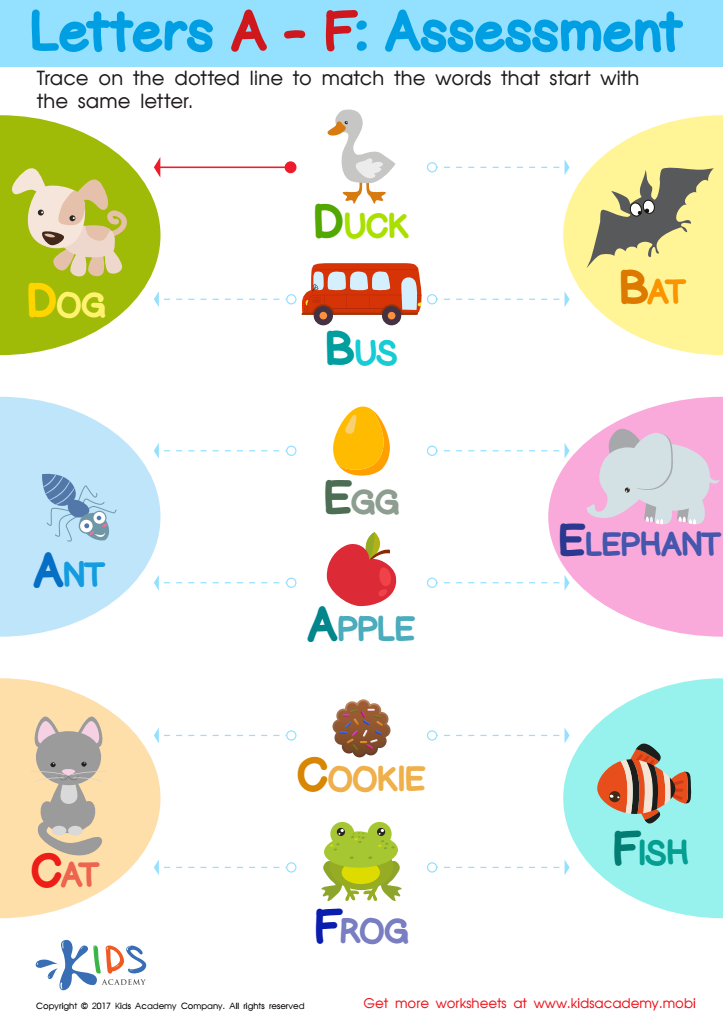

Letters A - F Worksheet
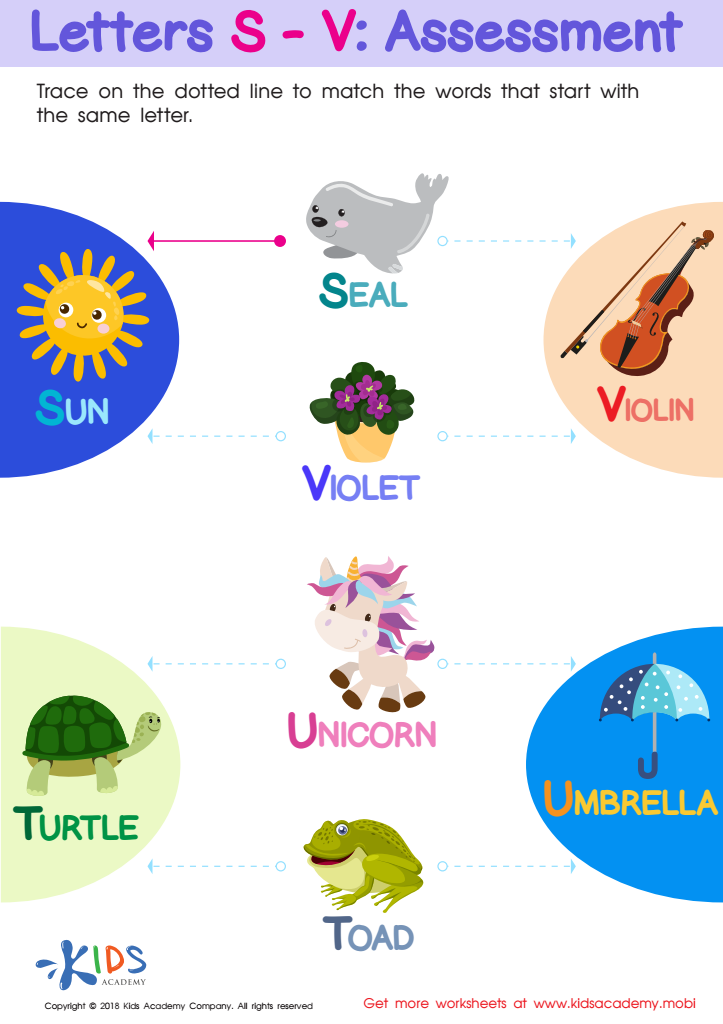

Letters S - V Tracing Worksheet
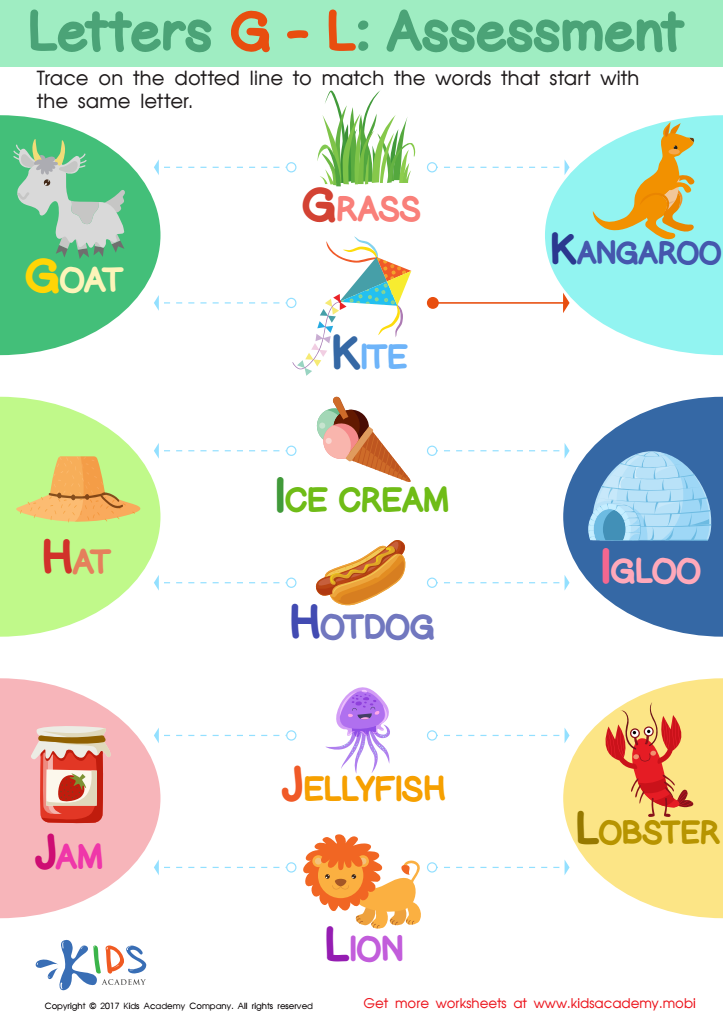

Letters G-L Worksheet
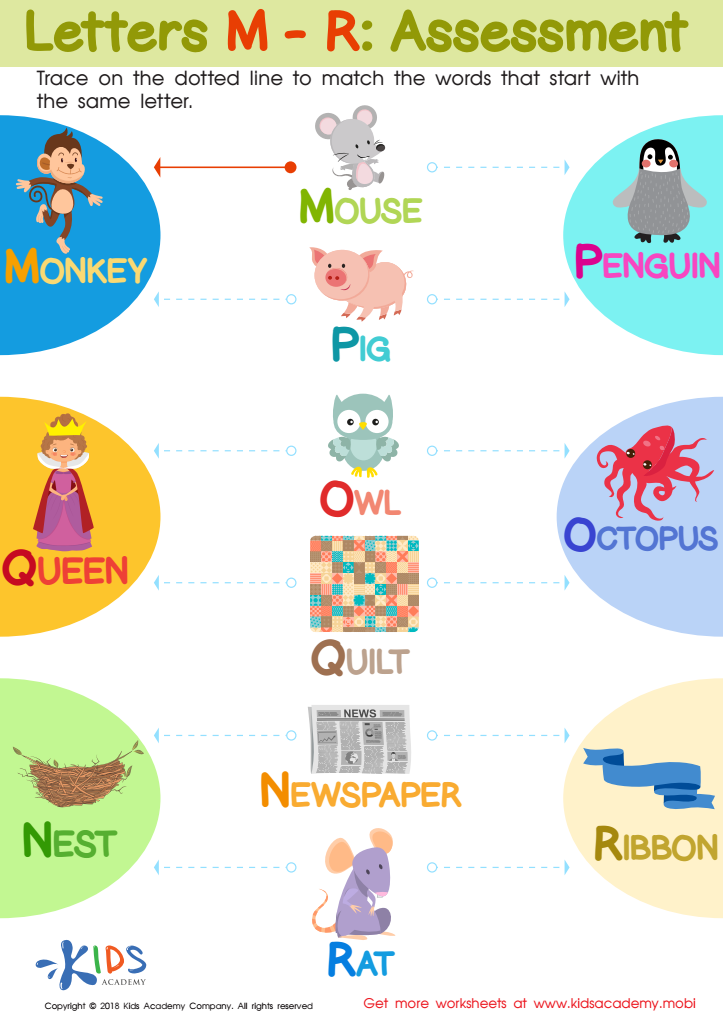

Letters M-R Tracing Worksheet
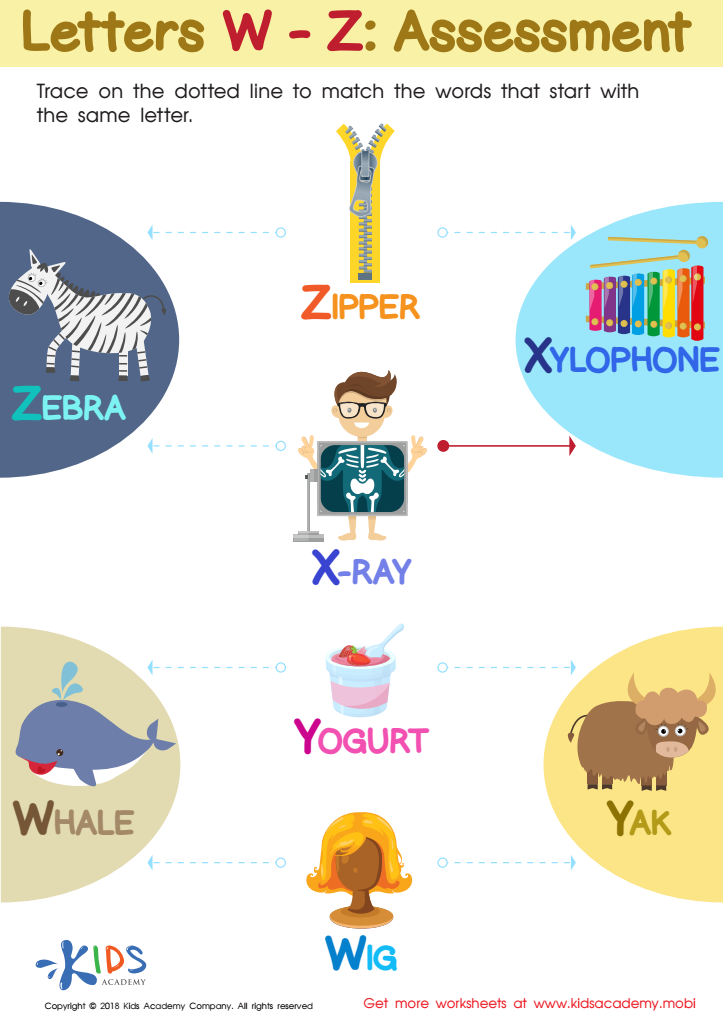

Letters W–Z Tracing Worksheet
Teaching children ages 5-8 the skill of alphabetizing is crucial for building a strong foundation in both literacy and organizational abilities. Early mastery of the alphabet helps them with recognizing letter order, enabling easier and quicker navigation through letters, whether it be in books, lists, or digital platforms. This "ordering" skill is not just academic; it’s practical, allowing them to find information efficiently.
Alphabetizing aids in vocabulary development by giving kids a structured way to learn new words. For instance, understanding how words are categorized and ordered in dictionaries can spark curiosity and motivate independent learning. Additionally, this skill supports the gradual transition from word recognition to fluent reading, which is fundamental in early education.
Beyond literacy, alphabetizing enhances cognitive development. It requires attention to detail, memory, and sorting abilities, fostering essential executive function skills. These skills contribute to problem-solving capabilities, logical thinking, and improved focus—abilities that are beneficial across all areas of learning.
Lastly, alphabetizing can improve their organizational skills. Being able to systematize their thoughts and belongings in an alphabetic order can make routines smoother and reduce anxiety in tasks that involve sorting or classifying information, building a sense of order and control. Overall, caring about alphabetizing in early childhood prepares children for both academic success and everyday undertakings.

 Assign to the classroom
Assign to the classroom





